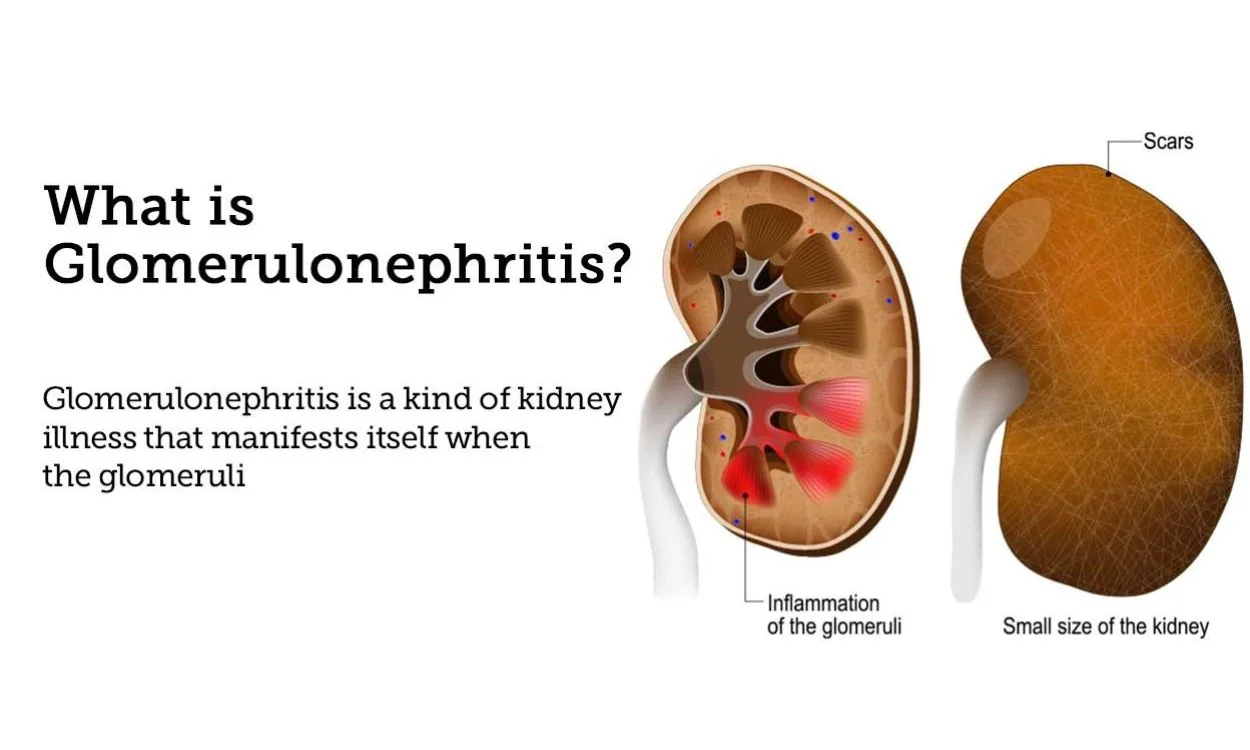What is Glomerulonephritis?
Glomerulonephritis is a condition that affects the kidneys, specifically the glomeruli, which are the tiny blood vessels responsible for filtering waste and excess fluid from the blood. It is an inflammation of the glomeruli that can lead to kidney damage and impaired kidney function.
Causes of Glomerulonephritis
Glomerulonephritis can have several causes, including:
- Infections: Certain infections, such as strep throat or skin infections, can trigger an immune response that affects the glomeruli.
- Autoimmune disorders: Conditions like lupus, vasculitis, and Goodpasture syndrome can cause the immune system to attack the glomeruli.
- Heredity: Some forms of glomerulonephritis run in families and can be inherited.
- Certain medications: Certain medications, such as nonsteroidal anti-inflammatory drugs (NSAIDs) or certain antibiotics, can cause an allergic reaction that damages the glomeruli.
- Systemic diseases: Diseases like diabetes or high blood pressure can damage the kidneys and lead to glomerulonephritis.
Symptoms of Glomerulonephritis
The symptoms of glomerulonephritis can vary depending on the severity of the condition, but common symptoms include:
- Blood or protein in the urine: One of the hallmark signs of glomerulonephritis is the presence of blood or protein in the urine, which can make the urine appear foamy or dark.
- Swelling: The kidneys’ reduced ability to remove excess fluid from the body can cause swelling, particularly in the legs, ankles, feet, and face.
- High blood pressure: Glomerulonephritis can lead to increased blood pressure, which can further damage the kidneys.
- Fatigue: Reduced kidney function can result in a buildup of waste products in the body, leading to fatigue and a general feeling of unwellness.
- Decreased urine output: In more severe cases, glomerulonephritis can reduce urine production.
Diagnosis and Treatment of Glomerulonephritis
If glomerulonephritis is suspected, a doctor may perform several tests to diagnose the condition, including:
- Urine tests: Testing the urine for the presence of blood, protein, or other abnormalities can help determine if glomerulonephritis is present.
- Blood tests: Blood tests can evaluate kidney function and check for signs of inflammation or infection.
- Kidney biopsy: In some cases, a small sample of kidney tissue may be taken for examination under a microscope to confirm the diagnosis.
Treatment of glomerulonephritis aims to reduce inflammation, manage symptoms, and prevent further kidney damage. This may involve:
- Medications: Medications such as corticosteroids or immunosuppressants may be prescribed to reduce inflammation and control the immune response.
- Blood pressure management: Controlling blood pressure is crucial in managing glomerulonephritis and may involve lifestyle changes and medications.
- Dietary adjustments: Reducing salt and protein intake may be recommended to reduce strain on the kidneys.
- Treatment of underlying causes: If glomerulonephritis is caused by an underlying condition, such as an infection or autoimmune disorder, treating that condition is essential.
Fitpaa App: Your Partner in Health and Wellness
While glomerulonephritis requires medical treatment and management, maintaining overall health and wellness is crucial for individuals with this condition. This is where the Fitpaa app can be a valuable tool.
Fitpaa offers a comprehensive approach to health and fitness, providing personalized plans and expert guidance to help individuals achieve their goals. Here’s how Fitpaa can support individuals with glomerulonephritis:
- Metabolism Assessment: Fitpaa’s Metabolism Monitoring Technology can assess an individual’s metabolism and provide valuable insights into optimizing overall health and fitness.
- Personalized Fitpaa Capsule: Fitpaa’s expert team of fitness coaches, nutritionists, and doctors can create a personalized Fitpaa Capsule based on an individual’s specific health goals, current lifestyle, and eating habits. This capsule includes medical therapy, exercise therapy, nutrition therapy, and cognitive-behavioral therapy to optimize metabolism and improve overall health.
- Real-time Guidance: Fitpaa’s Real-time Guidance technology incorporates habit-building techniques, timely nudging, and purpose-finding strategies to keep users motivated and on track with their health and fitness goals. The Fitpaa mobile app provides tools like virtual workout trainers, diet trackers, performance tracking, and progress monitoring to make following the Fitpaa Capsule easier.
- Fitpaa’s Fitness Planner: With Fitpaa, users have access to a team of fitness planners, nutritionists, fitness trainers, and doctors who regularly review progress and make necessary adjustments to ensure success.
By combining medical expertise with advanced technology, Fitpaa aims to help individuals with glomerulonephritis achieve their health and fitness goals while prioritizing their overall well-being. To experience the benefits of Fitpaa and start your journey towards a healthier life, download the Fitpaa app today.
Remember, while Fitpaa can support individuals in their health and fitness journey, it is essential to work closely with healthcare professionals and follow their recommendations for managing glomerulonephritis.









